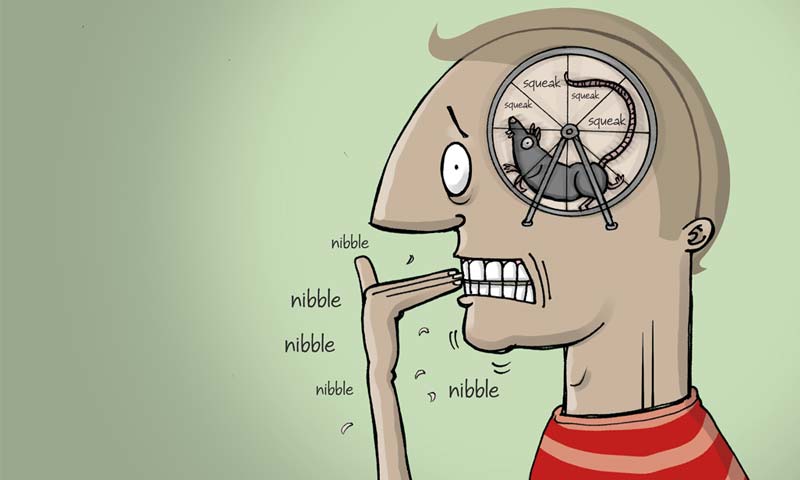Anxiety can make you feel like you’re losing control of your life. People often talk about feeling a sense of helplessness and express particular concern with how their anxiety is stopping them from doing the things they want to be doing with the other people in their lives.
If you’re feeling like this, here are a few simple and solid pieces of advice that you can work into your routine right now.
- Accept your feelings.
It’s ok to feel anxious. Your brain is triggering your parasympathetic nervous system to get your adrenal glands to pump adrenaline into your bloodstream to prepare yourself for imminent danger. That’s a fancy way of saying your brain is perceiving a threat to you and is trying its best to prepare you in the only way it knows how.
It’s also alright if that scares you. It’s normal to feel helpless or overwhelmed in the face of such a powerful bodily response. One of the first things you can do to reduce your anxiety is to stop fighting against it.
Accepting and internalizing the simple truth that anxiety can’t hurt you is a powerful step in taking control of your life back.
- Reach out to your loved ones.
Many people with anxiety suffer in silence. They feel embarrassed or afraid to open up about their anxiety to those around them. Maybe it’s fear of judgment, maybe it’s fear of seeing just how deep the rabbit hole goes – something is holding them back.
Your friends and family are the greatest resources in your struggle with anxiety. Never forget that. They love you, they want to help you, and they are not going to judge or abandon you. We all hold these same fears close to the chest, so I know it can be hard to reach out.
Give it a try. You just might be glad you did.
- Communicate as a family.
If anxiety is plaguing your household, the worst thing you can do is try to ignore it. Just like with all feelings of anxiety, it has a trigger. It could be your financial situation, your marital status, stress at work or school, or any number of the problems that we all face.
Identifying the source of anxiety and then communicating as a family about how you are feeling is going to provide instant relief. Family anxiety can do a lot of damage to your group dynamic, so managing it is important.
Whether or not you feel that it is your place or role to be the one to start this discussion, do it anyway. Stepping up and broaching a difficult topic is, well, difficult. But someone has to do it, so it might as well be you.
- Exercise together.
Taking up a new activity together, especially one based on physical activity can be a great way for your family to manage stress and anxiety. Not only has exercise been shown to be extremely beneficial for mental health, but it also has powerful team-building effects.
Starting a new endeavor together as a group will also give you more time to bond and relate to each other. One of the worst things anxiety can do to your family is to isolate you from each other. Group activities like biking and taking trips to the park are ways for you to interact as a family unit and prevent yourselves from drifting apart.
- Limit technology use.
The Digital Age has brought us a lot of wonderful advancements and powerful technologies that have given us amazing capabilities. It has also pushed us further towards individualism than ever before. Somehow in a world where you can see across the world in the blink of an eye, we’ve never been further apart.
Studies have shown that increased use of social media and mobile technology are linked to a rise in both anxiety and depression. Limiting the amount of time that your children are spending on their phones and on social media will not only help with their stress levels, but it can also help bring you closer as a family.
Just make sure that you set limitations and communicate them in a respectful way. Taking your kids phone away can be good for them, but it is also a great way to make them angry. Handle the situations with care and make sure that you are communicating respect and trust throughout the process.
- Make sure that you are getting healthy sleep.
One of the best things you can do for your mental health is to stick to a healthy and consistent sleep schedule. We all know we’re supposed to be getting enough sleep, but many people forget that when you sleep is just as important.
Your brain regulates your serotonin levels based on your internal clock, which gets information from your sleeping habits. That’s a fancy way of saying that if you are falling asleep at 2 a.m. every night, you are going to have less energy during the day even if you sleep for 8 full hours.
Conclusion.
If you’re facing serious anxiety as an individual or as a family, remember that you aren’t alone. Lots of people are experiencing the same type of strain and feel just as alone as you do. Focus on the things that you can control and take careful and deliberate action to improve your family’s mental health.











